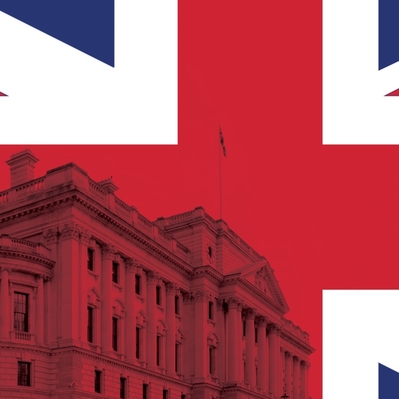I never planned to work in a job where the annual Budget would be an integral highlight. I still can’t quite believe how it happened, but that is a tale for another day.
believe how it happened, but that is a tale for another day.
The March Budget of 2016 needed to provide a wow factor this year. After a double whammy of Budgets in 2015, it had much to live up to, and there were many lines within the Chancellor’s speech upon which I could build my words, such as:
“In this Budget we choose to put stability first.”
“We fix our plans to fit the figures; we don’t fix the figures to fit the plans.”
“Because in this Budget we act now so we don’t pay later.”
But the one phrase that caught my attention, as the Chancellor introduced the Sugar Levy, was, “We understand that tax affects behaviour. So let’s tax the things we want to reduce, not the things we want to encourage.”
We could now go on to debate how this notion fits with the development of the Apprenticeship Levy (see below), announced in the Summer Budget of 2015, but instead let us turn our attention to just some of the detail that was to be found, not in the Chancellor’s Speech, but in the Budget Report of 2016, a mere 148 pages and accompanied by a hefty entourage of technical notes, consultation responses, and policy costings.
This detail, not the Chancellor’s words, will guide our payroll workload in the coming months.
Income Tax Thresholds
This announcement proved to be the cause of much political upheaval post-Budget, yet this was one area that was, for the payroll profession at least, reassuringly familiar. The tax-free personal allowance is set to increase in April 2017 to £11,500, £300 more than was announced previously. To ensure the benefits of the personal allowance increase are passed on to higher rate taxpayers, the point at which higher earners will start to pay 40% tax in 2017-18 will increase to £45,000. This is, again, higher than the £43,600 level announced in the Summer Budget 2015.
Apprenticeship Levy
The levy will apply to all U.K. employers in both the private and public sectors and will be payable on annual paybills of more than £3 million. Employers with an annual paybill of less than £3 million will not pay the levy. These employers will continue to have access to government funding to support apprenticeships.
With the promise of more information to come, the Chancellor confirmed that the Apprenticeship Levy will be introduced in April 2017, and employers committed to training received news that they will be able to get out more than they put in by way of a 10% top-up to their monthly levy contributions in England. This will be available for them to spend on apprenticeship training through their digital accounts. The Chancellor also committed to set out further details on the operating model along with draft funding rates to be published in June 2016.
Expenses and Benefits in Kind (BIKs)
As part of the U.K. Government’s policy, “Creating a simpler, fairer tax system,” the Office for Tax Simplification (OTS) began a project in April 2013 looking at employee benefits and expenses. This opens with the delivery of a package of four simplification measures, all of which are due to come into operation from April 2016.
The Budget confirmed that the simplification wagon will continue to roll with a commitment to introduce a further package of measures that will ensure further simplifications to the tax administration of employee benefits and expenses by:
- Extending the voluntary payrolling framework to allow employers to account for tax on non-cash vouchers and credit tokens in real time from April 2017
- Consulting on proposals to simplify the process for applying for and agreeing to PAYE Settlement Agreements
- Consulting on proposals to align the dates by which employees have to make a payment to their employers in return for a benefit-in-kind they receive to “make good”
- Legislating to ensure that if there is a specific statutory provision for calculating the tax charge on a benefit-in-kind, this must be used (Finance Bill 2016 and Finance Bill 2017)
Alignment of NICs and Income Tax—The OTS, which is to become a permanent office of HM Treasury from April 2016, recently produced a report on income tax and NICs alignment. While the U.K. Government has yet to respond to the points raised, it has commissioned the OTS to review the impacts of proceeding with two specific proposals:
- Moving employee National Insurance contributions (NICs) to an annual, cumulative, and aggregated basis, and
- Moving employer NICs to a payroll basis
Financial Advice Market Review (FAMR)—The government has committed to implement all of the recommendations for which it is responsible, made by FAMR specifically. This impacts expenses and BIKs, increasing the existing £150 Income Tax and National Insurance relief for employer-arranged pension advice to £500.
National Minimum Wage, National Living Wage 
On the eve of the Spring Budget, the Low Pay Commission (LPC) that had been tasked with reviewing the National Minimum Wage (NMW) rates for October 2016 published its recommendations.
During the Budget, the Chancellor of the Exchequer announced that government will set the main rate of the NMW, which applies for workers aged between 21 and 24, at £6.95, in line with the LPC recommendations. This increase means the main NMW rate will reach its highest ever level in real terms. The government has also accepted the LPC’s recommendations for the youth and apprentice rates. October 2016 will bring a:
- 3.7% increase in the rate for 21- to 24-year-olds (from £6.70 to £6.95 per hour)
- 4.7% increase in the rate for 18- to 20-year-olds (from £5.30 to £5.55 per hour)
- 3.4% increase in the rate for 16- to 17-year-olds (from £3.87 to £4.00 per hour)
- 3.0% increase in the rate for apprentices (from £3.30 to £3.40 per hour)
- 12.1% increase in the accommodation offset (from £5.35 to £6.00 a day)
Alignment of implementation dates—The government will align the National Minimum Wage and National Living Wage cycles so that both rates are amended in April each year. This will take effect from April 2017.
Shared Parental Leave
Shared Parental Leave was introduced along with several other amendments to the statutory leave and pay regime in April 2015. While its success, or otherwise, has yet to be reviewed, the government has now announced a date for consultation on how to implement its committed aim of extending Shared Parental Leave and Pay to working grandparents.
The consultation also will cover options for streamlining the system, including simplified eligibility requirements and the potential to make better use of digital technology. The consultation will be launched in May 2016 and aims to provide equality to single, working parents.
The government also will work with the Behavioural Insights Team (the team that introduced NUDGE techniques to HMRC tax compliance processes) to look at new ways to support parents in choosing how and when to return to work.
HMRC’s Customer Service
Good news came for employers, payroll professionals, the business community, and the wider accountancy profession as the Chancellor announced the government’s commitment to investing £71 million to improve the service it provides taxpayers. This investment aims to deliver:
- A seven-day-a-week service by 2017, with extended hours and Sunday opening on online services and the tax and tax credits phone lines, so that people and businesses have more opportunity to contact HMRC outside of working hours
- Improved telephone services and reduced call waiting times by recruiting more than 800 new staff into HMRC call centres
- A dedicated phone line and online forum for new businesses and self-employed individuals to get help and support about filing and paying their taxes for the first time and transitioning to using digital services
Improved service is an area that the Chartered Institute of Payroll Professionals (CIPP) continues to lobby for, as member surveys suggest that improvements are much-needed and long overdue. We applaud their inclusion in the budget report of 2016.
This article has covered only a small number of the proposals put forward in the Spring 2016 U.K. Budget, but one thing is clear: The payroll function continues to be fundamental in ensuring the successful delivery of the U.K. Government Budget pledges.